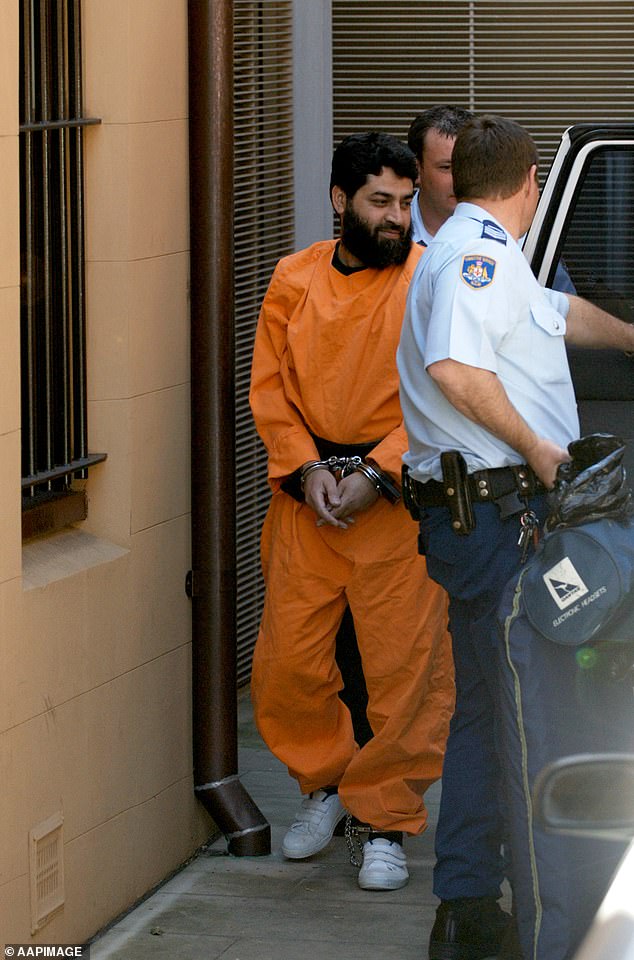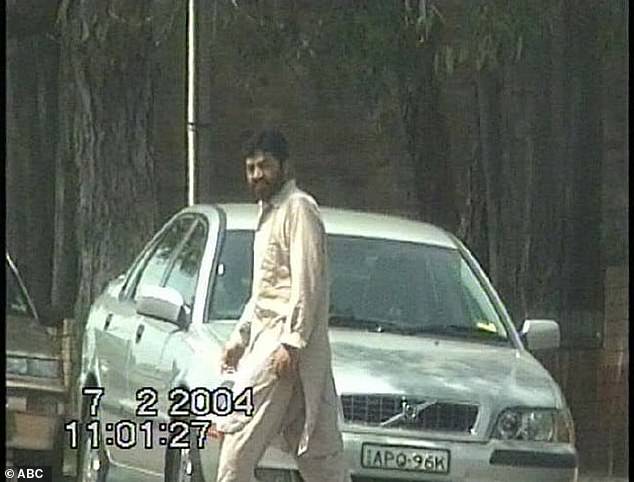Australia’s first convicted terrorist Faheem Lodhi is released on parole
Australia’s first convicted terrorist Faheem Lodhi is released on parole
A convicted man who became one of the first people in Australia to be charged with terrorist offenses has been released on parole.
Faheem Lodhi was recently released from custody by the NSW State Parole Authority and is now back in the community.
Lodhi is reportedly practicing his former profession as an architect and draftsman after the release order.
Convicted terrorist Faheem Lodhi (pictured) was released on parole after becoming one of the first to be jailed for terrorism-related crimes
The 53-year-old is believed to have been released without any court order requiring him to be monitored by police. Herald Sun reported.
No control order was also imposed on Lodhi, meaning he is free to travel abroad, in addition to several other provisions granted by the ruling.
This includes the ability to contact certain people and the freedom to own and use certain objects.
Lodhi is one of the few people released on parole after being found guilty of terrorist crimes.
The federal Department of Justice told Daily Mail Australia in a statement that no specific information about Lodhi’s case would be provided.
“It is a long-standing practice for the Attorney General not to make public the details of individual federal offenders, including details of decisions made regarding federal parole cases,” a department spokesperson said.
The authority’s ruling contains conditions that Lodhi must adhere to, but it is an important decision that could provide an opportunity for other offenders to have their sentences reviewed.
Lodhi was sentenced to 20 years behind bars in June 2006 after being found guilty of a plot to bomb the national grid and three army bases in Sydney.
His sentence included a fifteen-year non-parole period.
He was arrested in 2004 after spies at ASIO (Australian Security and Intelligence Organisation) discovered his plans to order chemicals and instructions in his possession that could be used to make bombs.
In October 2003, ASIO officials raided Lodhi’s home in Lakemba in Sydney’s west, where they seized several other documents.
This included aerial photographs of several army barracks in Sydney, including Holsworthy and Victoria army bases and HMAS Penguin at Mosman, on Sydney’s lower north coast.

Lodhi (pictured) was found guilty by a jury of plotting several terrorism-related crimes, including plans to bomb the national grid and several army bases in Sydney.

Lodhi (pictured) was previously released on parole after his bid to be released was rejected twice by former Attorney General Christian Porter in 2019 and 2020
Officers also obtained a so-called “terror manual” – a 15-page notebook filled with handwritten notes in Lodhi’s native Urdu – which contained instructions on how to make various explosives.
During his trial in the NSW Supreme Court at the time, Lodhi denied seeking or possessing these items.
Lodhi, who emigrated to Australia from Pakistan in 1998, saw his bid for parole rejected twice by former Attorney General Christian Porter in 2019 and 2020.
He was reclassified as a low-risk prisoner while serving part of his sentence at the Wellington Correctional Center near Dubbo, 400 kilometers west of Sydney.
Lodhi initially served the first few years of his sentence in Goulburn Supermax prison.
He denounced his own and other extremist actions, with his lawyer telling a court in 2020 that their client “admitted his guilt and could face the path that led him to offend and the wrong path he took.”
